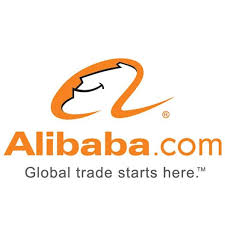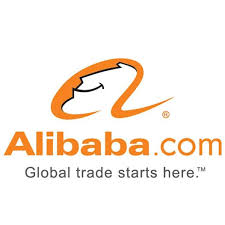
A US lawsuit against Alibaba Group Holdings Ltd was dismissed earlier this week on Tuesday in the US giving the Chinese e-commerce giant some releif.
The largest e-commerce company of China was accused in the lawsuit of concealing a regulator's warning about its ability to suppress counterfeiting on its websites and thereby it had defrauded its shareholders.
Alibaba did not fraudulently omit its July 16, 2014 meeting with China's powerful State Administration for Industry and Commerce from investor materials for its $25 billion initial public offering two months later, ruled the Chief Judge Colleen McMahon of the U.S. District Court in Manhattan, late Tuesday.
After the SAIC issued a white paper outlining concerns it had raised in the meeting, Alibaba's American Depositary Shares fell 12.8 percent on Jan. 28 and 29, 2015. May of the products that were being sold on the website of Alibaba were accused of having infringed on trademarks, or were banned, substandard or fake – these allegations were also included in the concerns.
Seven proposed U.S. class action lawsuits were filed over the share price drop even though the white paper was later withdrawn. All the seven lawsuits were later combined into a single nationwide case before McMahon.
There have been several lawsuits against Alibaba by luxury brands such as Gucci and Yves Saint Laurent for long and the Chinese company has long faced such accusations about its online platforms which have been described a a haven for counterfeiters in the lawsuits by the brands.
The IPO materials contained extensive disclosures of regulatory risks that Alibaba faced for failing to police its websites, McMahon said in her 40-page decision.
The indication that China's legal and regulatory environment made investing in a Chinese company such as Alibaba risky was made clear by the disclosures, the judge also said.
"It is clear that Alibaba did not downplay its problem with counterfeit sales on its platforms or the likelihood of an administrative action against it," McMahon wrote.
The allegations that Alibaba Chairman Jack Ma intended to conceal the SAIC meeting to inflate his proceeds from the IPO were not reflected by the plaintiffs, McMahon also said.
Forbes magazine said on Wednesday that Ma is worth $23.2 billion.
Holders of Alibaba ADS and ADS stock options from Sept. 19, 2014 through Jan. 29, 2015 were the ones who brought on the litigation. The lead plaintiffs are Christine Asia Co and William Tai.
There were no immediate comments made to the media by Laurence Rosen, a lawyer for the plaintiffs. There were also no comments on the dismissal available from neither Alibaba nor Jonathan Youngwood, a lawyer for the company and Ma.
The case is In re: Alibaba Group Holdings Limited Securities Litigation, U.S. District Court, Southern District of New York, No. 15-md-02631
(Source:www.reuters.com)
The largest e-commerce company of China was accused in the lawsuit of concealing a regulator's warning about its ability to suppress counterfeiting on its websites and thereby it had defrauded its shareholders.
Alibaba did not fraudulently omit its July 16, 2014 meeting with China's powerful State Administration for Industry and Commerce from investor materials for its $25 billion initial public offering two months later, ruled the Chief Judge Colleen McMahon of the U.S. District Court in Manhattan, late Tuesday.
After the SAIC issued a white paper outlining concerns it had raised in the meeting, Alibaba's American Depositary Shares fell 12.8 percent on Jan. 28 and 29, 2015. May of the products that were being sold on the website of Alibaba were accused of having infringed on trademarks, or were banned, substandard or fake – these allegations were also included in the concerns.
Seven proposed U.S. class action lawsuits were filed over the share price drop even though the white paper was later withdrawn. All the seven lawsuits were later combined into a single nationwide case before McMahon.
There have been several lawsuits against Alibaba by luxury brands such as Gucci and Yves Saint Laurent for long and the Chinese company has long faced such accusations about its online platforms which have been described a a haven for counterfeiters in the lawsuits by the brands.
The IPO materials contained extensive disclosures of regulatory risks that Alibaba faced for failing to police its websites, McMahon said in her 40-page decision.
The indication that China's legal and regulatory environment made investing in a Chinese company such as Alibaba risky was made clear by the disclosures, the judge also said.
"It is clear that Alibaba did not downplay its problem with counterfeit sales on its platforms or the likelihood of an administrative action against it," McMahon wrote.
The allegations that Alibaba Chairman Jack Ma intended to conceal the SAIC meeting to inflate his proceeds from the IPO were not reflected by the plaintiffs, McMahon also said.
Forbes magazine said on Wednesday that Ma is worth $23.2 billion.
Holders of Alibaba ADS and ADS stock options from Sept. 19, 2014 through Jan. 29, 2015 were the ones who brought on the litigation. The lead plaintiffs are Christine Asia Co and William Tai.
There were no immediate comments made to the media by Laurence Rosen, a lawyer for the plaintiffs. There were also no comments on the dismissal available from neither Alibaba nor Jonathan Youngwood, a lawyer for the company and Ma.
The case is In re: Alibaba Group Holdings Limited Securities Litigation, U.S. District Court, Southern District of New York, No. 15-md-02631
(Source:www.reuters.com)














